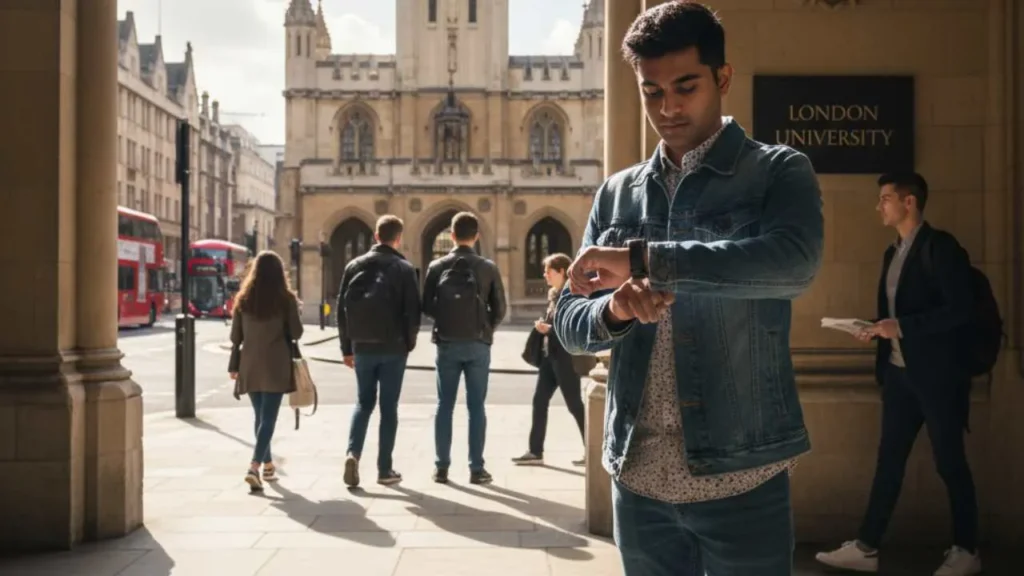
Culture Shocks for Indian Students Studying in the UK
In recent years, India has sent more students to the UK than to any other overseas country. What drives this growing trend? The UK has some of the world’s most respected institutions, with universities like Oxford, Cambridge, University College London, and Imperial College London all ranking within the top 10 globally. The UK also has a shorter course duration compared to India, a wide range of courses and specialisations, good career opportunities, and a multicultural environment.
However, even with these advantages, the transition to a new culture can be challenging. This feeling is completely normal and temporary, perhaps lasting weeks or months, but there are ways to make the transition to the UK easier so Indian students can enjoy the benefits of living and studying abroad.
What’s the UK Weather Really Like & How Should You Dress?
The UK is famous for its cold, wet, and unpredictable weather, where you are able to experience all four seasons throughout a single day. The weather is also an important topic for British people, so much so that it often forms the basis of small talk when interacting with locals.
To prepare for British weather, make sure you pack or purchase warm clothes for the cold and wet winters, including thick layers, sweaters, scarves, gloves, hats, and waterproof jackets. Many Brits also always carry a small umbrella everywhere, in case it rains unexpectedly. These items should keep you warm and dry for the winters, but how about the summers?
The UK and most of Europe do not typically have air conditioning in their buildings, meaning that summers can be exceedingly hot. Indian students should also pack summer clothes for these days, including shorts, shirts made of breathable fabrics, and sunglasses. Now that you are aware of how to dress for the UK’s physical environment, it’s also important to be aware of how to act in British society.
How to Navigate British Manners, Etiquette, and Small Talk
In the UK, politeness is paramount and underpins so much social etiquette. For example, saying “please” and “thank you” when interacting with others is incredibly important, and so is holding the door open for others where appropriate.
The locals are also famously over-apologetic. If you accidentally bump into them on the street, their first reaction is to apologise to you, even if you are at fault! Modesty is also a common trait, and Brits use understatements like “perhaps” or “possibly” to imply nuance and modesty to their speech. In comparison, boasting is often not well-received and is looked unfavourably upon.
Understanding British Humour & Sarcasm
The British are also well-known for their humour, famous for its use of sarcasm, irony and understatement. It might be raining heavily with strong winds, but a Brit might say, “Lovely weather we’re having, isn’t it?”.
What this actually means is the weather is terrible, but in India, you would never use sarcasm like this to describe clearly unlikable weather. Another example is if a Brit spills a drink over their laptop, they might say, “that went well”. Again, this is an understatement, and it actually means that what just happened was a disaster.
Upon landing in the UK, you may notice that others make small talk with you, often about the weather, current affairs in the news, or mutual interests. It is polite to partake in this small talk, even if it might be tiring for Indian students who are not used to it.
Furthermore, the British value time as a sign of respect, meaning that punctuality is extremely important and failing to arrive on time is seen as rude or impolite. Therefore, it is wise to plan to arrive a little early to meetings, perhaps 5-10 minutes, in case your travel time is longer than you initially expected.

Finally, queueing is also a sacred behaviour in the UK. Always join the back of the line and never attempt to skip ahead of others, as this is considered extremely rude and will earn you disapproving looks from everyone around you.
How Different Is the UK Education System from India’s?
One of the biggest adjustments Indian students face involves academic expectations. While the Indian education system might centre around rote learning and memorisation, the UK encourages an analytical and research-oriented approach, emphasising critical thinking more than the Indian system. Students are encouraged to form their own perspectives, question ideas and read beyond the syllabus.
This shift can feel challenging initially, but it is also highly rewarding. UK institutions value initiative and intellectual curiosity, skills which prepare students for global careers.
Things to Know Before You Move to the UK as a Student
Indian students arriving in the UK might find it difficult to rent accommodation, because renters are often asked for references and payslips. Since families are typically based in India, finding a guarantor based in the UK is often a challenge for Indian students.
Anyone looking to study in the UK should therefore start their housing search early and prioritise university accommodation for the first year, as these typically do not require UK references. For a simpler experience, you may want to use a professional guarantor service or student-specific housing services aimed directly at international students. Be wary of scams, and never pay upfront without viewing a property or meeting the landlord in person.
Dealing with Racism and Discrimination in the UK – What You Should Know
Although the UK is culturally and racially diverse, especially in big cities like London and Manchester, incidents of racism do still occur. However, universities have strict rules against discrimination, and British law has serious consequences for those who discriminate on the basis of race.
If you experience any form of discrimination, report it immediately to your university’s student wellness office. You may also want to save the emergency services number (999) on your phone and build a diverse support network of friends and university staff who can support you.
Conclusion
Adapting to life in the UK as an Indian student has its challenges, from navigating British etiquette and humour to acclimatising to the unpredictable weather. You may feel uncomfortable and homesick for the first few weeks or months, but remember that culture shock is temporary and you will eventually feel comfortable in your new environment.
Thousands of Indian students successfully make this transition every year, eventually going on to flourish academically and professionally in the UK. By preparing for the weather, understanding British etiquette, and embracing the unique teaching style, you will be well-equipped to make the most of your British education.
This experience will not only provide you with a world-class education, but it will also open doors for your professional career and give you the opportunity for growth you may never have had in India.






